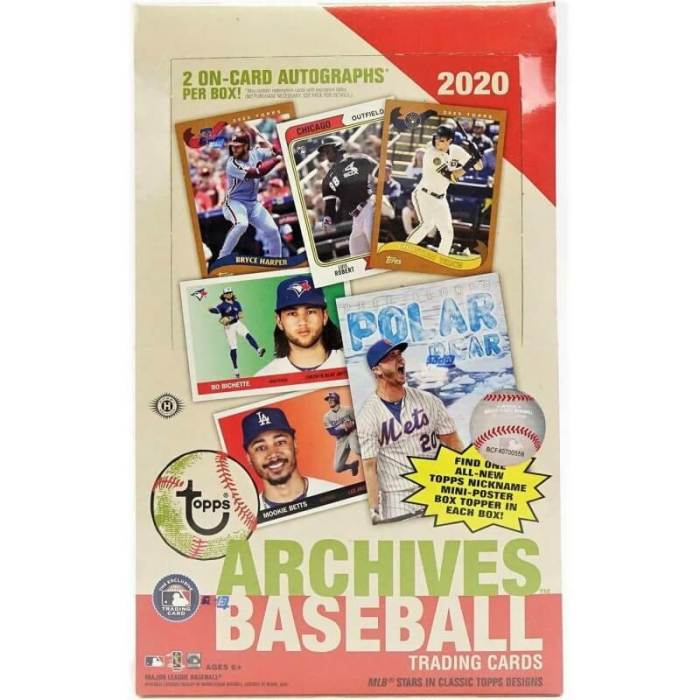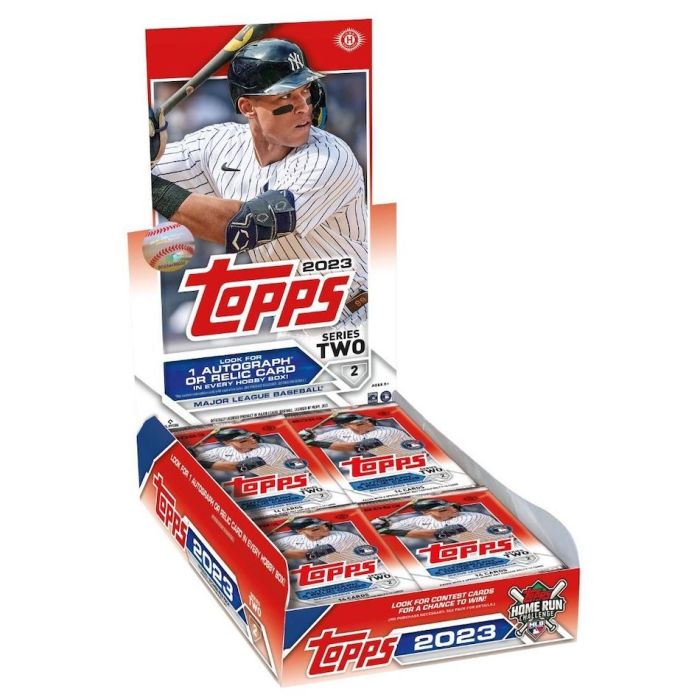Hobby Box Baseball Cards represent a vibrant and evolving market, captivating collectors and investors alike. From the thrill of the unboxing experience to the potential for significant returns, these boxes offer a unique blend of nostalgia, speculation, and community. This exploration delves into the market dynamics, influencing factors, investment strategies, and the future of this increasingly popular collectible.
The market for hobby boxes is diverse, encompassing various brands, player sets, and years, each with its own price point and potential for appreciation. Factors such as card rarity, player popularity (especially rookie cards and autographed specimens), and the condition of the cards heavily influence value. Grading services play a crucial role in determining a box’s worth, providing objective assessments that impact market pricing.
Understanding these dynamics is key to navigating this market successfully, whether as a collector or investor.
Market Overview of Hobby Box Baseball Cards

The hobby box baseball card market has experienced explosive growth in recent years, transforming from a niche collector’s pursuit to a multi-million dollar industry attracting both seasoned enthusiasts and new investors. This surge is driven by factors including increased media attention, the rise of online marketplaces, and the appeal of potentially lucrative returns on investment. Understanding the market dynamics, pricing trends, and product variations is crucial for both buyers and sellers navigating this rapidly evolving landscape.
Market Size and Trends
Precise market sizing for hobby box baseball cards remains challenging due to the decentralized nature of the market and the lack of comprehensive sales data. However, anecdotal evidence and sales figures from major online marketplaces suggest a market exceeding hundreds of millions of dollars annually. Key trends include increasing prices for high-demand boxes, particularly those containing rookie cards of prominent players or cards from significant historical moments.
The market also shows a strong correlation with the performance of individual players and teams, mirroring the ebb and flow of the baseball season itself. Furthermore, the rise of social media and online communities has fostered a sense of community among collectors, driving demand and influencing pricing.
Types of Hobby Boxes, Hobby Box Baseball Cards
Hobby boxes are categorized by various factors, including brand, player, and year. Major brands like Topps, Panini, and Upper Deck dominate the market, each offering numerous product lines with varying rarity levels and price points. Boxes can be themed around specific players, such as those featuring Mike Trout or Shohei Ohtani, commanding premium prices due to their popularity.
The year of release is also a crucial factor; boxes containing rookie cards from highly touted prospects often sell for significantly more than those from previous years. For instance, a box from a rookie year set featuring a future Hall of Famer can appreciate dramatically over time. Additionally, special edition or limited-release boxes contribute to the variety and overall market complexity.
Pricing and Influencing Factors
Pricing across different hobby boxes varies significantly, influenced by numerous factors. Rarity of cards within a box, player popularity, the condition of the cards, and the overall age and desirability of the set all play a significant role. Boxes containing autographed cards or memorabilia cards tend to command significantly higher prices. Furthermore, market sentiment and speculation also heavily influence pricing, with prices fluctuating based on current events within the baseball world and broader economic trends.
Limited-edition boxes, due to their scarcity, typically sell for substantially more than standard releases. For example, a limited-edition box featuring a rare rookie card might sell for thousands of dollars more than a standard box from the same year.
Average Price Ranges of Popular Hobby Boxes
| Brand | Product Line | Year | Average Price Range (USD) |
|---|---|---|---|
| Topps | Topps Series 1 | 2023 | $80 – $150 |
| Panini | Prizm Draft Picks | 2023 | $150 – $300 |
| Upper Deck | SP Authentic | 2023 | $200 – $400+ |
| Topps | Chrome | 2022 | $100 – $250 |
Factors Influencing Hobby Box Value: Hobby Box Baseball Cards

The value of a hobby box of baseball cards is a complex interplay of several factors, ultimately dictated by the market’s perception of scarcity, desirability, and condition. While a box’s advertised contents provide a baseline expectation, the actual contents and their condition significantly impact its final worth. Understanding these influences is crucial for both collectors and investors navigating this dynamic market.The inherent value of a hobby box is directly tied to the cards it contains.
Rarity, player popularity, and card condition are paramount. A box containing multiple highly sought-after rookie cards or autographed cards will command a much higher price than one with predominantly common cards. The condition of the cards, graded on a scale (often by third-party grading services like PSA or Beckett), further influences value; a pristine, mint-condition card is exponentially more valuable than a damaged or worn one.
Rookie Cards and Autographed Cards
Rookie cards, representing a player’s first professional card appearance, often hold significant value. The player’s subsequent success in Major League Baseball directly correlates with the card’s worth. A rookie card of a future Hall of Famer, even if initially inexpensive, can appreciate dramatically over time. Similarly, autographed cards, especially those with inscriptions or unique signatures, are highly coveted and fetch premium prices.
The authenticity of the autograph, verified through reputable sources, is paramount to its value. For example, a Mickey Mantle rookie card in pristine condition can fetch millions, while a similarly graded but non-autographed card will still command a high price, but significantly less.
The Role of Grading Services
Third-party grading services, such as Professional Sports Authenticator (PSA) and Beckett Grading Services (BGS), play a crucial role in determining a hobby box’s worth. These services assess the condition of individual cards using standardized scales, providing objective assessments that influence market pricing. A hobby box containing cards graded by these services typically commands a higher price than one with ungraded cards, reflecting the assurance of condition and authenticity.
The grading itself adds a layer of value, with higher grades translating to higher prices. A PSA 10 grade, representing a perfect condition, is the most sought after.
Examples of Appreciated Hobby Boxes
Several hobby boxes have experienced significant value appreciation. For instance, boxes from early Topps sets featuring iconic players like Mickey Mantle or Willie Mays have seen astronomical increases in value due to the rarity and historical significance of the cards within. Boxes from limited-edition or short-print releases also tend to appreciate faster due to their inherently lower supply.
The 1952 Topps Mickey Mantle rookie card, for example, is legendary for its remarkable price increases over the years. While the entire box wouldn’t be available for purchase, the individual cards’ price growth demonstrates the potential for appreciation within a hobby box. Similarly, boxes containing rookie cards from players who quickly become superstars, like Mike Trout or Shohei Ohtani, can also see substantial increases in value relatively quickly after release.
The hobby box baseball card market presents a compelling investment opportunity, but one fraught with risk and reward. While the thrill of the unboxing and the potential for high returns are undeniable, careful research, informed decision-making, and a long-term perspective are essential. The future of the market, influenced by technological advancements like digital cards and NFTs, promises further evolution, demanding adaptability and foresight from those seeking to participate.
The passionate community surrounding the hobby, however, remains a constant, fostering a vibrant and engaging marketplace.

